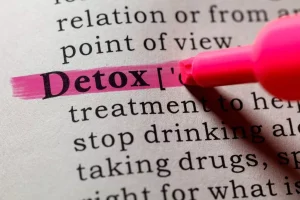The Benefits of Meditation in Addiction Recovery

Substance use disorders (SUDs) have been described as “chronic relapsing conditions,” with rates of relapse exceeding 60% and being relatively consistent across substances of abuse.(4–6) A range of treatments have been developed to target relapse. Among behavioral interventions, cognitive behavioral therapy (CBT), including relapse prevention,(7) has received considerable support. However, in spite of best “standard of care” therapy, relapse rates continue to be high, highlighting the need for development of new treatment modalities to better assist individuals in their recovery.

Support for Me and My Family
- MAT is one of the many types of treatment that is encompassed by the Harm Reduction approach to substance use.
- Modern MBIs for addiction typically provide standard focused attention and open monitoring meditations, as well as mindfulness exercises specifically tailored to address substance craving and substance use habits.
- The hallmark of substance use disorders as well as behavioral addictions is habitual or even compulsive behavior such as recurrent use of drugs or repetitive performance of activities such as gaming or gambling.
- A recovery coach or recovery manager typically is knowledgeable about and can help an individual client find and access needed support resources at every step of the way.
- The evaluation typically includes a comprehensive history and assessment of the patient’s social situation.
Cultivation of increased cognitive control capacity through mindfulness practices can allow the individual to gain self-control over automatic substance use behavior. Contemporary advances in addiction neuroscience have paralleled increasing interest in the ancient mental training practice of mindfulness meditation as a potential therapy for addiction. In the past decade, mindfulness-based interventions (MBIs) have been studied as a treatment for an array addictive behaviors, including drinking, smoking, opioid misuse, and use of illicit substances like cocaine and heroin. This article reviews current research evaluating MBIs as a treatment for addiction, with a focus on findings pertaining to clinical outcomes and biobehavioral mechanisms. Studies indicate that MBIs reduce substance misuse and craving by modulating cognitive, affective, and psychophysiological processes integral to self-regulation and reward processing.

Why Do You Need Mindfulness and Meditation in Recovery?
That’s precisely the moment when adding mindfulness and meditation to your addiction recovery program could reboot your enthusiasm and re-energize your journey. Recovery from addiction is a process; addiction meditation kundalini it’s not just about stopping abusing a substance. To stay clean and sober addicts have to examine their past, recognize their mistakes, look into their character, and lead a better life.
Can mindfulness really help prevent relapse?
- Among behavioral interventions, cognitive behavioral therapy (CBT), including relapse prevention,(7) has received considerable support.
- Motivational interviewing, or motivational enhancement, is a conversational technique in which a psychologically informed counselor seeks to help a person find, strengthen, and capitalize on their own internal motivation to change behavior.
- Meditation makes it easier for them to forgive the past and develop healthy relationships.
Because stopping substance use typically ushers in a period of acute and often all-consuming distress that subsides in days or weeks, treatment is generally divided into to two distinct periods. Care during the acute phase addresses the physiologic effects of stopping a biologically active chemical. Other benefits of meditation therapy include the ability to alter brainwaves, which contributes to improved psychological function and cortisol reduction.
Six Types of Meditation for Addiction Recovery

In the addiction world, “intervention” is a technique of confrontation intended to drive a person into treatment for addiction. Those who promote interventions contend that only such a dramatic event can pierce the denial of harmful consequences that is presumed to be perpetuating the addiction. One of the most fundamental is assessment and treatment of any mental health conditions that underlie substance use (often called https://ecosoberhouse.com/ dual diagnosis). Evidence suggests that the majority of those with substance use disorders have a contributing psychiatric disorder, whether depression, anxiety, attention deficit hyperactivity disorder (ADHD), or other condition. In participants with internet gaming disorder (IGD), MORE treatment led to reduced maladaptive gaming-related cognitions, and this reduction mediated decreases in craving and IGD severity [79].
Current state of the field: a review of clinical outcomes of mindfulness-based treatments for addiction
- A small but growing number of well-designed clinical trials and experimental laboratory studies on smoking, alcohol dependence, and illicit substance use support the clinical effectiveness and hypothesized mechanisms of action underlying mindfulness-based interventions for treating addiction.
- It’s important to know what the many treatment options are and at least as challenging to know which would be best fit for any individual, to say nothing of figuring out how to pay for it.
- Positive emotions through mindfulness meditation or mindfulness based interventions are effective treatments as a relapse prevention strategy.
- With regular practice, meditation can be a powerful tool for individuals in addiction recovery to manage stress, regulate emotions, and build a healthy life.
- In addition to reduce cigarette use, participants of a mindfulness training intervention exhibited a decreased association between craving and smoking [98].

